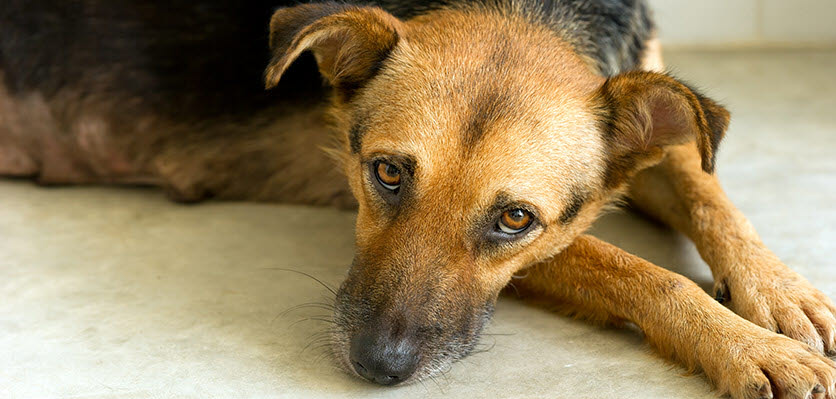
It is not uncommon for our pets to eat things they shouldn't. Sometimes it is just a table scrap that has fallen on the floor and other times it's something more serious like a sock, a toy or a corncob from the bin. This article will discuss some of the reasons animals eat things they shouldn't, what to do if your pet has eaten something abnormal, how your vet may treat your animal and things you can do at home to prevent this from happening.
Why does my pet eat things like socks?
The term used for describing when pets eat items that have no nutritional value is pica. Veterinarians often refer to non-nutritional items that cannot be digested by the gastrointestinal system as 'foreign bodies'.
Pica can be caused by a number of medical conditions, for example, some infections and cancers. Certain hormonal diseases, such as hyperadrenocorticism or Cushing's disease can also stimulate an abnormal or voracious appetite.
In young dogs, pica is often behavioural and the result of curiosity. Many young dogs enjoy chewing on toys and socks, and pica will occur as a result of them dismantling and swallowing the items. Foreign bodies may also be consumed by accident, for example, packaging associated with meat, the skewer within a kebab or a corncob.
What do I do if my dog has eaten a sock?
Firstly, contact your local veterinarian. They will likely ask you what your pet has eaten and how long ago. The amount of time that has passed since your dog ate the foreign body is important, as it may change how your pet is treated. If it was recent, the foreign body may still be in the stomach and your veterinarian may induce emesis (cause your pet to vomit). This can be done using a variety of drugs and your pet may receive an anti-nausea injection following the procedure.
Inducing emesis is not always successful in removing a foreign body, especially if a large amount of time has lapsed. If your dog has eaten something sharp like a skewer or cooked bone inducing vomiting may not be appropriate.
What happens if my dog doesn't throw up the sock?
Thankfully, some socks or foreign bodies travel through the gastrointestinal and are passed in faeces with minimal damage caused. The risk is that the sock becomes stuck and causes a blockage (complete obstruction). This often occurs in the small intestine as it is the thinnest section of the gastrointestinal system, however, it can occur anywhere. Pets who have an obstruction will often have signs of vomiting, inappetence or become very lethargic.
If untreated, an obstruction can become a life-threatening emergency as it affects blood flow to the small intestine causing damage or even perforation (tearing) of the intestinal wall. At this point, surgical intervention is required to remove the foreign body and possibly pieces of damaged intestine.
How can I prevent this from happening to my pet?
Many young dogs grow out of their sock and foreign body predilections. However, for those that don't try:
- Buying toys that are difficult to break into small parts or don't contain large amounts of stuffing
- Hide the laundry basket or keep it out of reach
- Contact your local veterinarian if you are concerned.
